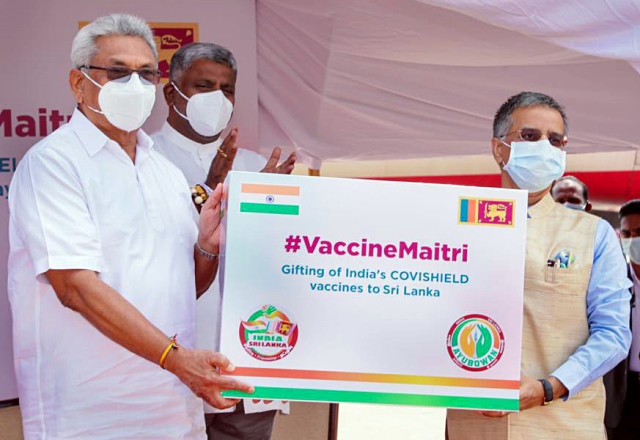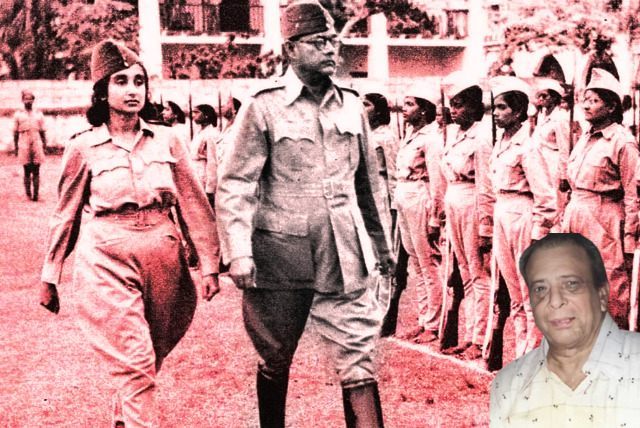
India’s Response to Covid Diplomacy by Neighbours
As the Second Wave of the COVID 19 pandemic caused unforeseen number of deaths and infections in India during the month of April 2021, geopolitics continued to feed on this tragic time. This phase of tremendous and sudden rise in the number of infections led to all kinds of shortages of medical facilities for the affected. The impact was most severely felt in the number of beds available in the hospitals and supply of medical oxygen. With cases rising in short duration, the already inadequate and poor health infrastructure wilted and soon the situation was visible to the international community.
Countries ranging from United States, Germany, Japan, Australia to China and Brazil responded with medical supplies to help India cope with the crisis. India’s neighbouring countries including Pakistan also extended support. Foreign Ministry of Pakistan offered ventilators, Bi PAP, digital X ray machines, PPEs and related items. The offer followed a message of support by PM Imran Khan. The Edhi Foundation, a non-government humanitarian organization, offered 50 ambulances and accompanying medical staff via a letter to the Indian Prime Minister. These offers of support and help were either ignored or refused by the Indian government.
The offer of help, however, by the Pakistani government through the spokesman of Foreign Ministry, was accompanied with a call to release the imprisoned Kashmiri leaders and for a meaningful dialogue between the two countries. It is notable on February 25, 2021 India and Pakistan agreed on a ceasefire on the Line of Control (LoC), the de facto border in Jammu and Kashmir. This sudden announcement of ceasefire still causes curiosity in India.
Speculations are also rife that the ceasefire might have been caused by a behind the scenes United States intervention as it grapples with a rising China in the subcontinent. With Pakistan firmly intertwined with the Chinese economy and aid, the US may weighed upon its former ally in the region, Pakistan, to effect the ceasefire. India’s rapidly increasing proximity and partnership with the US in various fields is a reality and has started to impact South Asian geopolitics.
ALSO READ: Vaccine Diplomacy – Has India Lost?
In these circumstances, India’s refusal to accept COVID 19 help from Pakistan indicates towards its unwavering stance on terrorist groups based in Pakistan and the linkages with ISI. US withdrawal from Afghanistan and Pakistan’s role thereafter can be a factor in the fragile peace on the LoC and hence the ceasefire. India’s stance towards Pakistan may not witness a substantial change despite these gestures of solidarity during the pandemic.
China now influences politics and events in many parts of Asia and Africa and it has a bearing on India’s neighbours. During the April COVID 19 surge in India, China immediately extended help and support to fight the pandemic. India’s initial response to the offer was lukewarm. This was perhaps reflective of its line after the events in Eastern Ladakh at the Line of Actual Control (LAC) since May 2020. India has reiterated several times that it cannot be business as usual if the situation at LAC caused by Chinese incursions is not resolved.
The Chinese, however, responded with a call to the Chinese businessmen to expedite orders of medical equipment to India. And in the first week of May 2021, President Xi Jinping offered help and support through the Chinese Embassy in New Delhi. Finally, the Chinese through the International Federation of Red Cross Societies and Red Crescent Societies provided equipment and $ 1 million in cash to the Indian Red Cross Society. Officially, however, India chose not to respond to direct offers of Covid support and help from China.
ALSO READ: ‘Vaccine Maitri Raised India’s Stature In World’
This marks a resolute stance by New Delhi as the talks on the remaining areas of contention on the LAC are stalled after eleven rounds of talks at various levels between the two countries. Later, at the BRICS summit meeting on 31st May,2021 Chinese state councillor and Foreign Minister Wang Yi offered collective BRICS support in India’s fight against the pandemic which India accepted as a member and host recorded.
Elsewhere in the neighbourhood, Bangladesh also extended medical assistance to India during the second wave of the pandemic. Initially, 10,000 vials of the injection, Remdesivir were sent to India in the first consignment. Later, towards the end of May, more than 2500 boxes of medicines and protective equipment were sent across the border to India. India accepted both the consignments and expressed thanks through the official channels.
The surprising act, on behalf of Bangladesh, in the context of the sub-continent is the offer of a $200 million currency swap to Sri Lanka to tide over its massive debt crisis affected by the Chinese investments.
The pandemic and its second wave in India, therefore, has not impacted the geopolitics in the Indian sub-continent. Apart from the ceasefire with Pakistan, which, this time has a mysterious quality, and its longevity remains in question, there are no positives in the relationship as the support extended in the second wave of India was refused or not responded to. Similarly, with China, problems at the LAC remain despite protracted negotiations between Beijing and New Delhi. India’s diplomacy with smaller neighbours in the sub-continent has the omnipotent Chinese shadow, though there is gradual realization in the region, of the ways and means of China post the increasing credibility of reports of origins of the COVID 19 from Wuhan.



